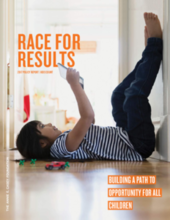This page contains documents and other resources related to children's care in the Americas. Browse resources by region, country, or category.
Displaying 2111 - 2120 of 3116
This study explores self-stigma in the utilization of mental health services while in foster care and whether the stigma developed while in foster care impacts mental health service use upon foster care exit.
This study sought to identify factors that contribute to the relational well-being of youth in substitute care.
This webinar series provides clinicians, counselors, and other helpers with insights on recognizing and dealing with the most difficult crises and turning points that occur in therapy with traumatized children and families.
This chapter provides a description of the Partners in Child Protection (PICP) project, the assessment protocols utilized, and the implementation strategies applied to support and maintain the partnership.
The Santa Cruz Museum of Art & History, in the San Francisco Bay Area of California, invited a team of former foster youth and advocates to help put together an exhibit on foster care in California, called 'Lost Childhoods.'
Following up on a 2014 report of the same name, this report (Race for Results) describes the disproportionate barriers facing children of immigrant families in the US, and it recommends strategies that policy, community and civic leaders can use to guide their decisions so that all our children have a fair chance to thrive.
This chapter aims to discuss the methodological implications of research with children and adolescents who are living in foster care, with emphasis on the use of visual methods and reflexive interviews.
This study employed Concept Mapping (CM) with a convenience sample of 51 foster youth/alumni in one southeastern state in the US to explicate a conceptual framework for the development of campus supports for collegiate foster youth/alumni, and examine priority areas (e.g., importance and feasibility).
This chapter aims to present a research grounded in the bioecology of human development that analyzed shelter institutions through the perceptions of children aged from 7 to 12 years in Brazil.
This article from KUTV draws connections between what is called the "opioid crisis" in the state of Utah, and all over the United States, and the growing incidence of child abuse in the state.


